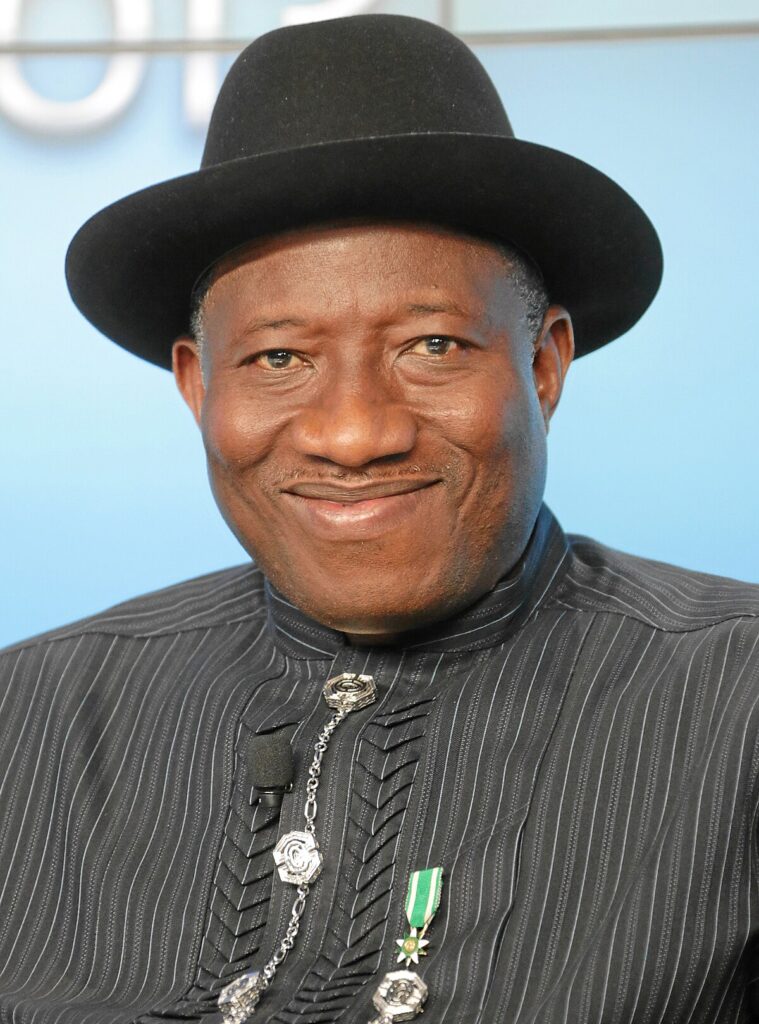Former President Goodluck Jonathan has called for urgent reforms in Nigeria’s electoral system, particularly in the appointment process of the Independent National Electoral Commission (INEC) chairman, as the country prepares for the 2027 general elections.
Jonathan, represented by Executive Director of the Goodluck Jonathan Foundation, Ann Iyonu delivered the remarks at the public presentation of the National Action Plan for Electoral Reforms organised by the Abuja School of Social and Political Thought (TAS) on Wednesday, August 27, 2025.
Commending TAS for its commitment to democratic development, Jonathan said, “The work you are doing is not only critical for the health of our political system, but it is also a patriotic service to our country and its future generations.”
The former President emphasised that while Nigeria has made progress since returning to democratic rule, the electoral system continues to face significant challenges.
He stressed that reforms are needed to better reflect the will of the people, ensure justice, and strengthen democratic institutions, adding, “If we are truly committed to democracy, we must be bold enough to reform the process to better reflect the will of the people and the principles of justice, accountability, and inclusion.”
Highlighting the growing crisis of political party indiscipline, Jonathan expressed concern over opportunistic defections by elected officials, noting, “We have seen a disturbing rise in the practice of cross-carpeting, elected officials defecting from the parties under which they were elected, often without ideological justification or accountability to the electorate.”
He proposed the establishment of an independent body to regulate party operations and enforce internal democracy, suggesting that “the office should have the power to declare the seat of any defector vacant.”
On the matter of INEC leadership, Jonathan argued that “the credibility of elections rests heavily on the neutrality and competence of the Independent National Electoral Commission (INEC).”
He called for an independent screening and nomination process involving representatives from the judiciary, civil society, academia, and professional bodies, from which the President would appoint the INEC chairman.
He noted, “This reform will reduce perceptions of bias, promote public trust in INEC, and enhance the legitimacy of its decisions.”
Jonathan also stressed the importance of resolving all post-election disputes before elected officials are sworn into office, observing, “It creates confusion and undermines governance when candidates with unresolved election cases assume office, only to later be removed by the courts.”
He urged the adoption of frameworks that compel timely resolution of electoral disputes, adding, “Justice delayed in elections is justice denied, not just for the candidates, but for the electorate.”
The Director of TAS, Dr. Sam Amadi, echoed Jonathan’s concerns, advocating for constitutional amendments to bar individuals who held party leadership roles or government appointments within the past five years from INEC leadership positions.
He said, “What the Abuja school has done is to propose a reform to enact the Uwais Report recommendation, transferring the appointment of INEC Chairman, Commissioners, and Resident Electoral Commissioners (RECs) from the President to the National Judicial Council (NJC).”
The recommendations also include post-tenure restrictions, preventing INEC officials from joining political parties or taking political appointments for five years after their terms. Amadi added that reforms must “mandate the electronic transmission of polling unit results to a secure, publicly accessible INEC portal” and that results must be signed by electoral officers and witnesses and released immediately to the public. Expansion of ‘locus standi’ would allow voters, credible citizens, and candidates to challenge election outcomes that violate the Electoral Act.
Labour and trade union leaders at the event also emphasised the urgency of reforming Nigeria’s electoral system. NLC President Joe Ajaero, represented by Prof. Theophilus Ndubuaku, said “We must prevail on the members of the National Assembly to ensure the electoral law is reformed.”
TUC President Festus Osifo, represented by Martin Egbanubi, stressed the need for merit-based appointments, calling for “the establishment of a special court and an electoral offences commission to curb vote buying in the country.”
Chief Peter Ameh of the Coalition of United Political Parties suggested, “While the NJC may nominate for INEC, the nomination must be passed by two-thirds of the national assembly members,” and recommended that “all the country’s elections should be concluded in one day to reduce the rate of vote buying and voter apathy.”

